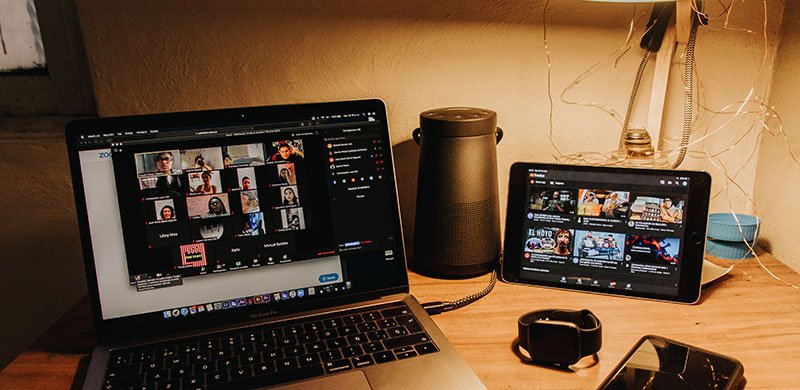
Once considered as an interesting benefit offered only by certain organisations, having dedicated remote teams has become more common. According to a recent report, remote work has grown by 44 percent in the last five years, even if the effect of the pandemic is taken out.
Heading into 2022, knowing how remote work will feel as the new normal will be interesting. With hiring challenges continuing in 2022, a dedicated remote team is going to be great for businesses. But, leading a remote team can seem daunting. You may have faced the challenge of managing remote teams and have likely discovered that new approaches need to be cultivated to ensure success.
The culture of a remote-first business revolves around transparency, communication, and trust. With trust comes community building, which is key for maintaining good relations. Having a good relationship with your remote team is essential for engagement and productivity. Here, we will guide you through six practises that can help ensure that your dedicated remote teams stay productive.
Track Time and Employee Activity to Boost Productivity
One thing you can count on from your dedicated offshore team is increased productivity. Productivity is a key variable, and you’ll need a way to measure it if you want to improve it. Especially in current times, monitoring and maximising productivity is more essential than ever.
Thanks to technology, there are many ways you can do it. Time tracking tools are great for knowing how much time it takes to accomplish tasks. Also, by using tools like a remote desk, you will be able to monitor your remote team’s digital activities.
Establish Ground Rules for Communication
One of the biggest challenges during the current remote working setup is communication. If unchecked, this can result in a disengaged remote team. Communication in remote teams can’t happen as easily as in a conventional office setting. Using the right tools for internal communication is paramount to team efficiency.
Business leaders need to identify the best communication technologies to invest in. The dedicated remote team must be aware of the most appropriate channels for different forms of business communication. The only way of overcoming this barrier would be to encourage employee questions, maintain open lines of communication, and deploy best communication practises.
Hold Frequent Check-ins and One-on-ones With Your Team
Given the current scenario, you must have an effective employee check-in strategy in place. Frequent performance check-ins are one-on-one conversations between managers and remote teams about their objectives and their performance strategies.
Effective organisations use check-ins to gain insight into how their remote teams work, what works for them and what needs to be revised. Check-ins require you to acknowledge the issues addressed and act on them immediately.
Encourage Social Interaction to Boost Team Chemistry
Humans are social beings that depend on communication and collaboration to thrive. While working remotely, many miss out on significant team-building opportunities. But, there are ways to promote team-building activities and help remote teams engage better.
To help the dedicated remote team develop healthy relationships at work and stay motivated, it’s crucial to encourage them to communicate with each other and promote team-building initiatives. You can create virtual break rooms for taking virtual coffee breaks with the team and host fun and interactive events in them.
Video conferencing facilitates both real-time collaboration and fun. When used correctly, it can be an antidote for disconnected remote teams.
Listen to Your Employees and Support Them
Employees always wish to be heard, and hearing what they have in mind will help the business progress and innovate. Businesses should be proactive in seeking out opinions, and look for ways to include remote teams in the idea process and bring them into implementation.
Choosing effective digital tools in the new remote world is vital for delivering this. This needs a deep understanding of remote teams through communication platforms and survey software to gather and analyse feedback.
Build Trust and Avoid Micromanaging
Building and maintaining trust in conventional workplaces is not easy. It is even more challenging in the case of remote teams. Here, organisations need to be deliberate about how they build and maintain relationships to nurture trust.
Remote teams cannot have organic conversations. So, employers have to be intentional about developing interactions to help people build trust. The time remote teams spend on social channels should not be considered a waste because it assists them to get to know each other.
The fear that remote teams will not be productive without one looking over their shoulder makes the manager tend to micromanage the team, and employees tend to overwork to prove they are effective. So, the answer to both these issues is developing a culture of trust.





